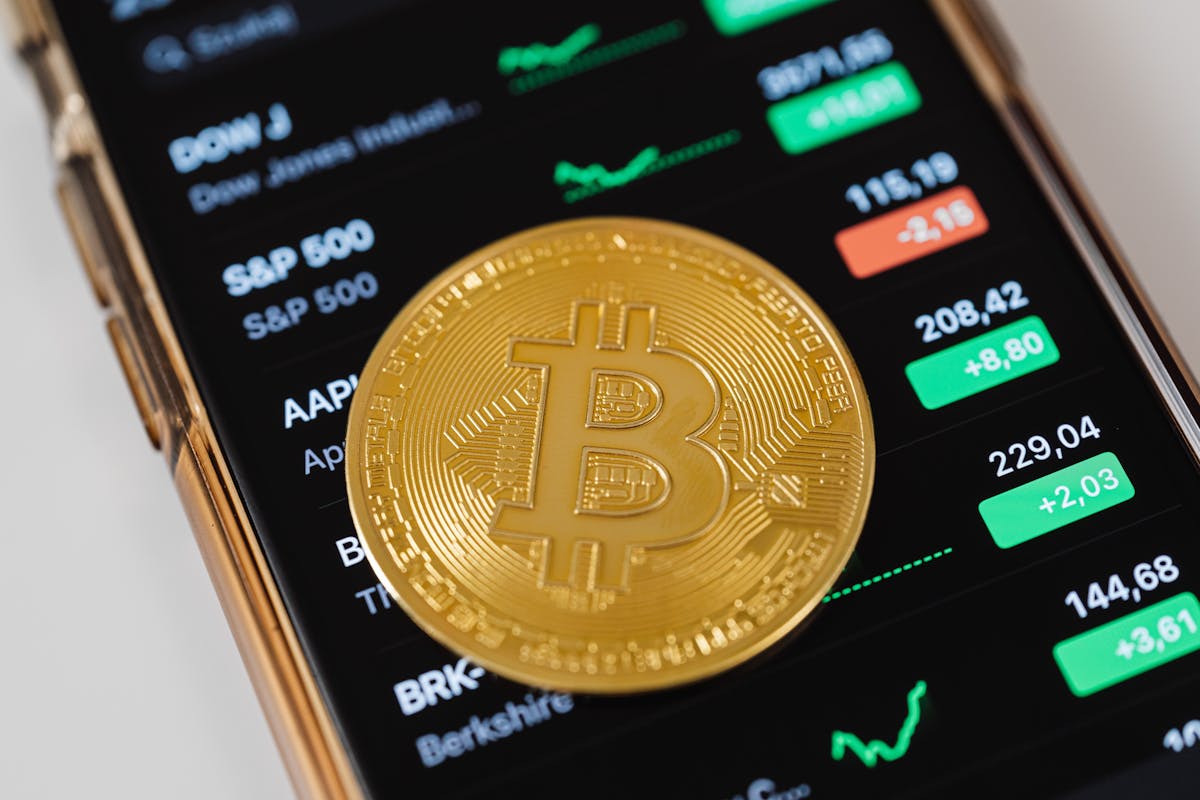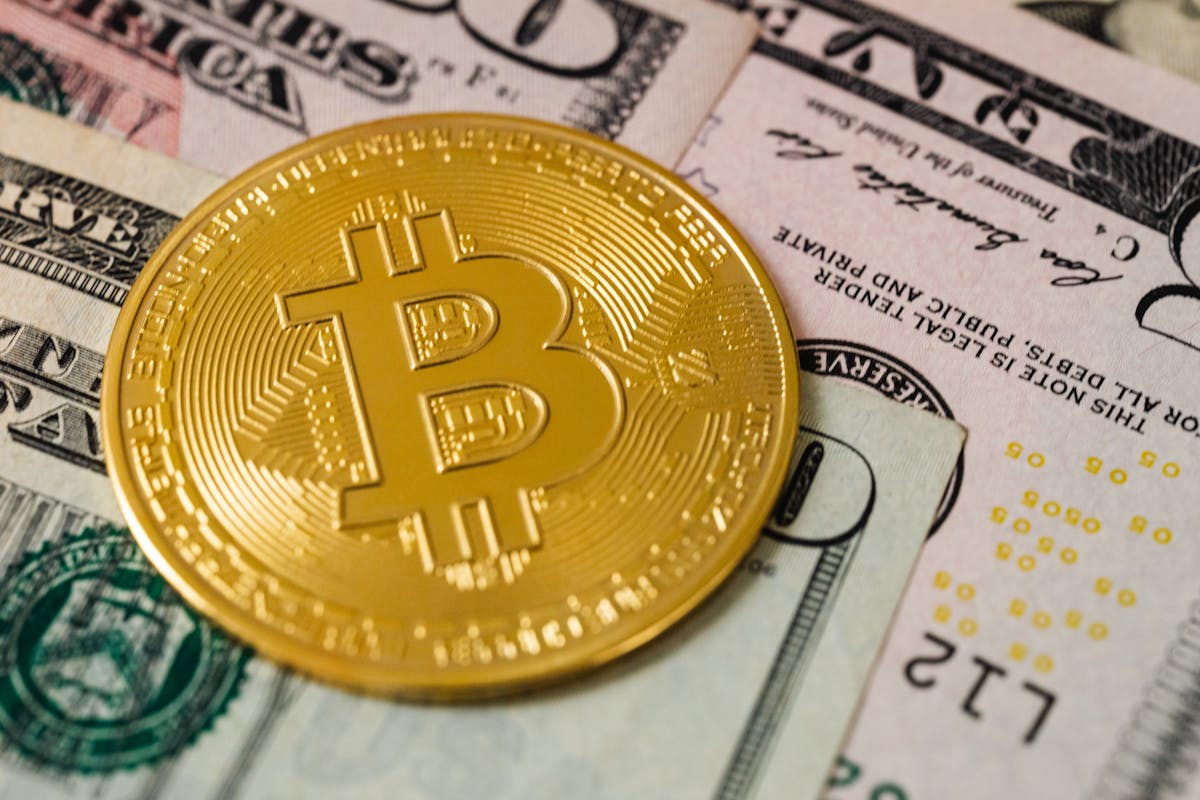Cryptocurrency and Online Gambling: New Age Addiction Risks
Exploring the dangerous convergence of digital assets and anonymous gambling platforms that's creating unprecedented addiction challenges
📚 What You'll Discover in This Guide
- The Explosive Growth of Crypto Gambling
- Anonymous Betting Platforms and Hidden Dangers
- Neurobiological Similarities to Traditional Gambling
- When Crypto Trading Becomes Gambling
- The Perfect Storm of Addiction Risk Factors
- Who's Most at Risk
- Warning Signs and Red Flags
- Evidence-Based Treatment Approaches
- The Evolving Regulatory Landscape
- Protecting Yourself and Your Loved Ones
The digital revolution has fundamentally transformed how we interact with money, investments, and entertainment. At the intersection of these changes lies a rapidly emerging threat that addiction treatment professionals are only beginning to understand: the convergence of cryptocurrency and online gambling.
This new landscape presents unprecedented challenges for individuals in recovery and those vulnerable to addictive behaviors. The combination of anonymous transactions, 24/7 accessibility, extreme volatility, and minimal regulatory oversight has created what researchers are calling a "perfect storm" for addictive behavior.
Unlike traditional forms of gambling that typically require physical presence or regulated online platforms with identity verification, cryptocurrency gambling operates in a largely unregulated digital space. Recent research published in the Journal of Mental Health and Addiction indicates that the psychological factors affecting cryptocurrency trading behaviors closely mirror those seen in gambling disorders.
The statistics are alarming. According to recent studies, 96% of problem gamblers have at least one other psychiatric disorder, and problem gamblers are much more likely to own cryptocurrencies than non-problem gamblers (38% vs 6%). This convergence suggests we're witnessing the emergence of new addiction pathways that traditional treatment approaches may not adequately address.

The constant monitoring of volatile cryptocurrency markets can trigger compulsive behaviors similar to gambling addiction
This intersection of digital finance and gambling presents unique challenges for addiction treatment professionals and requires a comprehensive understanding of both gambling disorder mechanisms and the specific psychological triggers present in cryptocurrency environments.
The Explosive Growth of Crypto Gambling
The cryptocurrency gambling industry has experienced unprecedented growth that has caught both regulators and treatment professionals off guard. Understanding the scale and speed of this expansion is crucial for recognizing the emerging public health implications.
According to comprehensive market analysis, the crypto gambling industry has achieved a five-fold increase over five years, representing more than just financial growth—it signifies a fundamental shift in how digital entertainment and blockchain technology intersect.
This explosive growth isn't occurring in a vacuum. The same period has seen a dramatic increase in cryptocurrency adoption globally, with approximately 190% growth in the global user base for cryptocurrencies from 2018 to 2020. When combined with the isolation and economic uncertainty created by the COVID-19 pandemic, these factors created ideal conditions for the rapid expansion of online gambling activities.
The accessibility of these platforms represents a significant departure from traditional gambling venues. While conventional casinos and sportsbooks typically require extensive identity verification, crypto gambling platforms often allow users to begin wagering with only an email address and a digital wallet connection.

The extreme volatility of cryptocurrency markets creates gambling-like excitement and risk-taking behaviors
Market projections suggest this growth will continue, with the crypto gambling sector expected to reach $400 million by 2028. This represents a projected 12.5% compound annual growth rate, indicating sustainable expansion rather than speculative bubble behavior. More concerning from a public health perspective is the prediction that crypto gambling will capture 15% of the global online gambling market by 2026.
The rapid expansion has occurred with minimal regulatory oversight in most jurisdictions, creating an environment where vulnerable individuals can access potentially harmful gambling products without the consumer protections typically required in regulated gambling markets. This regulatory gap has significant implications for gambling addiction prevention and treatment.
Anonymous Betting Platforms and Hidden Dangers
One of the most concerning aspects of the cryptocurrency gambling explosion is the proliferation of anonymous betting platforms that operate with minimal identity verification requirements. These platforms represent a significant departure from traditional regulated gambling environments and create unique risks for individuals prone to addictive behaviors.
Anonymous crypto gambling sites typically allow users to register with only an email address, bypassing the Know Your Customer (KYC) procedures required by most regulated gambling operators. While marketed as enhancing privacy and convenience, these platforms eliminate crucial safeguards designed to protect vulnerable individuals.
Research indicates that the anonymity provided by cryptocurrency transactions and the lack of traditional banking oversight removes important friction points that might otherwise cause problem gamblers to pause and reconsider their behavior.
The range of anonymous crypto gambling platforms has expanded dramatically. Recent industry analysis identifies numerous platforms offering everything from traditional casino games to sports betting, all accessible through cryptocurrency transactions. These platforms often boast features like "instant withdrawals," "no verification required," and "complete anonymity."
The elimination of traditional banking relationships means that many of the monitoring systems that banks use to identify potential problem gambling behavior are absent. Credit card companies and banks often have policies to flag rapid, large gambling transactions, but cryptocurrency transactions bypass these institutional safeguards entirely.
Instant Registration
Users can create accounts and begin gambling within minutes using only an email address and crypto wallet connection
Untraceable Transactions
Cryptocurrency payments provide anonymity that prevents traditional monitoring systems from detecting problem gambling patterns
24/7 Access
These platforms operate continuously without the temporal or geographic restrictions that might limit traditional gambling
Minimal Oversight
Operating in regulatory gray areas, these platforms often lack the responsible gambling tools required on licensed sites
Perhaps most concerning is the absence of responsible gambling tools that regulated operators are required to provide. Traditional online gambling sites must offer features like deposit limits, session time limits, and self-exclusion options. Anonymous crypto gambling platforms often lack these protective mechanisms entirely.
The marketing of these platforms frequently emphasizes the ability to avoid "intrusive" verification processes and government oversight, appealing to users who may be seeking to hide their gambling activities from family members, financial institutions, or employers. This appeal to secrecy can be particularly dangerous for individuals already struggling with problem gambling behaviors.

Anonymous gambling platforms can enable secretive behavior that isolates users from support systems
The lack of age verification on many of these platforms presents additional concerns. While traditional gambling sites employ sophisticated age verification systems, anonymous crypto platforms often rely solely on user attestation, creating opportunities for underage gambling that would be more difficult to accomplish through regulated channels.
For individuals in recovery from gambling addiction, these platforms present unique challenges. The ability to quickly and anonymously access gambling without the usual barriers can undermine recovery efforts and make it significantly more difficult for recovery support systems to provide effective monitoring and intervention.
Neurobiological Similarities to Traditional Gambling
Understanding the neurobiological mechanisms underlying cryptocurrency gambling addiction is crucial for developing effective treatment approaches. Recent neuroscience research reveals that the brain responds to cryptocurrency trading and gambling in remarkably similar ways, activating the same reward pathways and creating comparable patterns of addiction.
The brain's reward system, centered on dopamine release in the nucleus accumbens, responds to uncertain outcomes and variable reinforcement schedules—exactly what characterizes both traditional gambling and cryptocurrency market volatility. Research published in the International Journal of Mental Health and Addiction demonstrates that cryptocurrency speculation shares the same neurobiological mechanisms as gambling disorder.
🧠 Neurobiological Discovery
Brain imaging studies show that cryptocurrency trading activates the same neural pathways as gambling, particularly in the ventral striatum and prefrontal cortex, areas critical for reward processing and decision-making.
The volatility inherent in cryptocurrency markets creates what researchers call "intermittent variable reinforcement"—the same psychological mechanism that makes slot machines addictive. When cryptocurrency prices fluctuate dramatically, the brain receives unpredictable rewards and losses, strengthening neural pathways associated with compulsive behavior.
According to neurobiology research on gambling addiction, genetic factors contribute to approximately 50-60% of an individual's risk for developing gambling disorders. These same genetic vulnerabilities appear to influence susceptibility to cryptocurrency trading addiction, suggesting shared biological mechanisms.
The "Fear of Missing Out" (FOMO) phenomenon, particularly prominent in cryptocurrency communities, creates additional neurobiological stress. FOMO activates the brain's alarm systems, flooding the prefrontal cortex with stress hormones that impair rational decision-making. This neurochemical state makes individuals more likely to engage in impulsive, high-risk trading behaviors.

Brain imaging reveals how cryptocurrency trading activates the same neural pathways as gambling addiction
Chronic engagement in cryptocurrency gambling leads to neuroplastic changes similar to those observed in substance use disorders. The brain's tolerance mechanisms require increasingly larger trades or higher stakes to achieve the same neurochemical satisfaction, paralleling the tolerance development seen in other addictive disorders.
The 24/7 nature of cryptocurrency markets compounds these neurobiological effects. Unlike traditional stock markets that close overnight and on weekends, cryptocurrency markets never close, creating constant opportunities for dopamine-seeking behavior. This continuous availability can lead to sleep deprivation, which further impairs prefrontal cortex function and decision-making capacity.
Social media integration in many crypto trading platforms adds another layer of neurobiological manipulation. The combination of financial risk-taking with social validation mechanisms (likes, shares, comments on trading successes) creates multiple concurrent reward pathways, making these behaviors particularly difficult to control.
Understanding these neurobiological similarities is essential for gambling addiction treatment professionals working with clients who have developed problematic cryptocurrency behaviors. Treatment approaches that have proven effective for traditional gambling disorders may be applicable to cryptocurrency-related addictive behaviors.
When Crypto Trading Becomes Gambling
The line between legitimate cryptocurrency investing and gambling-like behavior has become increasingly blurred, with significant implications for addiction risk. Understanding when and how cryptocurrency trading crosses into gambling territory is crucial for identifying problematic behaviors before they escalate into full addiction.
Legitimate cryptocurrency investing typically involves research-based decisions, long-term holding strategies, and risk management practices. However, many individuals engage in what researchers term "speculative trading" that shares more characteristics with gambling than investing.
According to recent studies, 31% of cryptocurrency purchasers reported buying crypto "as a gamble," while 18% were motivated by desires for quick profits—behaviors that mirror gambling motivations rather than investment strategies.
Research published in Addictive Behaviors found that problem gambling scores and engaging in stock trading were significantly related to measures of cryptocurrency trading intensity, including time spent daily, number of trades, and level of expenditure.
Several factors distinguish gambling-like crypto trading from legitimate investing:
Frequency of Transactions
Legitimate investors typically make infrequent, deliberate purchases. Gambling-like behavior involves multiple daily transactions driven by market emotions rather than analysis.
Time Investment
Excessive time spent monitoring prices, reading social media discussions, and making impulsive trades indicates problematic behavior patterns.
Emotional Motivation
Trading driven by excitement, FOMO, or attempts to recover losses rather than rational investment strategies suggests gambling-like behavior.
Risk Tolerance
Using leverage, borrowing money to trade, or investing more than one can afford to lose indicates dangerous escalation toward gambling behavior.
The use of leverage in cryptocurrency trading represents a particularly concerning development. Many crypto platforms offer leverage ratios of 100:1 or higher, meaning traders can control $100,000 worth of cryptocurrency with just $1,000 of their own money. While this amplifies potential profits, it also dramatically increases the risk of catastrophic losses.
According to the UK Gambling Commission, 68% of younger traders compare cryptocurrency investing to gambling, and the most popular reason for consumers buying cryptocurrency was "as a gamble that could make or lose money."

Obsessive monitoring of cryptocurrency price movements can indicate the transition from investing to gambling-like behavior
The social aspects of cryptocurrency trading communities often reinforce gambling-like behaviors. Online forums and social media groups frequently celebrate high-risk trades, promote "YOLO" (You Only Live Once) investment strategies, and create peer pressure to engage in increasingly risky behaviors.
"Meme coins" and highly speculative cryptocurrency projects represent another intersection between investing and gambling. These digital assets often have no underlying utility or value proposition beyond speculative trading, making them functionally equivalent to lottery tickets or casino games.
For individuals with existing gambling problems, cryptocurrency trading can become a substitute addiction. The neurochemical rewards provided by volatile trading can satisfy the same brain pathways that traditional gambling activated, making cryptocurrency trading a particularly dangerous relapse trigger.
Treatment providers working with clients who have gambling disorders must now assess cryptocurrency trading behaviors as part of comprehensive addiction evaluations. The overlap between these activities suggests that effective residential treatment programs should address all forms of speculative financial behavior, not just traditional gambling.
The Perfect Storm of Addiction Risk Factors
The convergence of cryptocurrency and online gambling has created what addiction researchers describe as a "perfect storm" of risk factors. Understanding how these elements combine is essential for recognizing the unprecedented addiction potential of this emerging landscape.
Traditional gambling addiction typically develops through exposure to specific risk factors operating independently. However, cryptocurrency gambling presents multiple risk factors operating simultaneously, creating compound addiction risks that exceed those found in traditional gambling environments.
The first element of this perfect storm is unprecedented accessibility. Cryptocurrency gambling platforms operate 24/7 without geographical restrictions, meaning individuals can access potentially harmful gambling activities from anywhere at any time. Unlike traditional casinos that require physical presence or online platforms with banking restrictions, crypto gambling removes virtually all barriers to participation.
The second factor is the elimination of traditional financial safeguards. Banking institutions typically monitor gambling transactions and can intervene when they detect problematic patterns. Cryptocurrency transactions bypass these monitoring systems entirely, removing important external controls that might otherwise limit harmful gambling behavior.
⚠️ Critical Risk Factor
Research shows that over 32% of cryptocurrency holders check their portfolios daily, with 12% making daily transactions—behavior patterns that mirror those seen in problem gambling populations.
Anonymity represents the third element of this perfect storm. The ability to gamble without identity verification removes accountability mechanisms that might otherwise encourage responsible behavior. Family members, employers, and even individuals themselves can lose track of gambling activities when they occur through anonymous cryptocurrency platforms.
The fourth factor is extreme volatility creating gambling-like excitement even in legitimate cryptocurrency investing. According to recent research, high market volatility significantly increases trading frequency among participants, with this pattern persisting even when accounting for variables like financial literacy, age, gender, and overconfidence.

The combination of mobile access, anonymity, and constant market volatility creates unprecedented addiction risks
Social media amplification constitutes the fifth element. Cryptocurrency communities heavily utilize social platforms where success stories are celebrated and risky behaviors are normalized. The fear of missing out (FOMO) created by constant exposure to others' apparent successes can drive increasingly desperate attempts to achieve similar results.
The sixth factor involves the gamification of trading platforms. Many cryptocurrency exchanges and gambling sites incorporate game-like elements including achievement badges, leaderboards, and reward systems that trigger the same psychological mechanisms that make video games addictive.
Marketing targeting vulnerable populations represents the seventh element. Cryptocurrency gambling platforms often specifically target individuals experiencing financial stress, promising quick solutions to economic problems. This predatory marketing exploits financial desperation and can trap vulnerable individuals in cycles of loss-chasing behavior.
The final element in this perfect storm is the absence of effective regulatory oversight. Unlike traditional gambling, which operates under strict licensing requirements and consumer protection regulations in most jurisdictions, cryptocurrency gambling often operates in regulatory gray areas where consumer protections are minimal or nonexistent.
When these eight factors combine, they create addiction risks that exceed those found in traditional gambling. Individuals who might never develop problems with conventional gambling may find themselves vulnerable to problematic behaviors in cryptocurrency gambling environments. This reality requires addiction treatment approaches that address the unique aspects of this emerging addiction landscape.
Who's Most at Risk
Understanding which populations face elevated risks for cryptocurrency gambling addiction is crucial for early identification and prevention efforts. Research reveals that certain demographic and psychological characteristics significantly increase vulnerability to these emerging addictive behaviors.
Young adults represent the highest-risk demographic for cryptocurrency gambling addiction. According to multiple studies, individuals aged 18-24 show the highest rates of gambling problems at 7.1%, and this same demographic demonstrates the highest engagement with cryptocurrency trading and digital gambling platforms.
Men face significantly higher risks than women, with gambling addiction prevalence among men being 1.5-2 times more common than among women. This gender disparity appears even more pronounced in cryptocurrency gambling, where male participation rates are substantially higher than female participation.
Individuals with existing mental health conditions face dramatically elevated risks. Research consistently shows that 96% of problem gamblers also meet criteria for another mental illness, including depression, anxiety disorders, ADHD, and substance use disorders. The anonymous and accessible nature of cryptocurrency gambling makes it particularly appealing to individuals seeking to self-medicate psychological distress.
Those with previous gambling problems represent an extremely high-risk population. The accessibility and anonymity of cryptocurrency gambling platforms can provide easy relapse opportunities for individuals in recovery from traditional gambling addictions. Recovery maintenance becomes significantly more challenging when potentially triggering activities are accessible without traditional barriers.
Individuals with high-risk trading experience, particularly day traders and those involved in leveraged stock trading, show significantly elevated risks for developing problematic cryptocurrency gambling behaviors.
Technology workers and individuals in the cryptocurrency industry face unique occupational risks. Constant exposure to cryptocurrency markets, technical knowledge that may foster overconfidence, and workplace cultures that sometimes celebrate high-risk trading can create environmental pressure toward problematic behaviors.
College students represent another high-risk population. The combination of limited financial resources, social pressure to participate in trending activities, and the stress of academic life creates conditions where cryptocurrency gambling may seem attractive as a potential solution to financial problems or a way to achieve social status.

Young adults and college students face elevated risks due to financial stress and social pressures around cryptocurrency
Individuals experiencing financial stress or economic instability show increased vulnerability to predatory marketing that positions cryptocurrency gambling as a solution to financial problems. Economic desperation can override rational decision-making and lead to increasingly risky behaviors as losses mount.
People with histories of substance abuse face compounded risks. The neurobiological changes associated with addiction create increased susceptibility to new addictive behaviors. Cryptocurrency gambling can become a substitute addiction, particularly during early recovery when individuals are seeking alternative sources of excitement and reward.
Social isolation increases cryptocurrency gambling risks. Individuals with limited social support networks may be more susceptible to online communities centered around high-risk trading and gambling activities. The social validation provided by these communities can reinforce problematic behaviors.
Military veterans represent a particularly vulnerable population due to higher rates of PTSD, depression, and substance use disorders. Veterans' treatment programs must now consider cryptocurrency gambling risks as part of comprehensive care planning.
Understanding these risk factors allows families and treatment providers to identify potentially problematic behaviors early and implement appropriate interventions before full addiction develops.
Warning Signs and Red Flags
Recognizing the early warning signs of cryptocurrency gambling addiction is crucial for timely intervention. Unlike traditional gambling, which often involves obvious behavioral changes like frequent casino visits, cryptocurrency gambling can remain hidden for extended periods due to its digital and anonymous nature.
The subtle nature of cryptocurrency gambling addiction means that family members, friends, and even individuals themselves may not recognize problematic behaviors until significant harm has already occurred. Understanding these warning signs can facilitate early intervention and prevent escalation to severe addiction.
Obsessive Market Monitoring
Constantly checking cryptocurrency prices, spending excessive time on trading apps, or becoming distressed when unable to monitor markets
Emotional Volatility Tied to Markets
Mood swings that correlate with cryptocurrency price movements, euphoria during gains, and severe depression during losses
Increasing Risk-Taking
Using leverage, borrowing money to trade, or investing amounts that significantly impact financial stability
Secretive Behavior
Hiding trading activities from family members, lying about cryptocurrency investments, or being defensive about trading habits
Sleep disturbances often represent early warning signs of problematic cryptocurrency behavior. The 24/7 nature of cryptocurrency markets can lead to staying awake to monitor Asian or European trading sessions, setting phone alarms for price alerts, or experiencing insomnia due to market-related anxiety.
Financial warning signs may be subtle initially but often escalate quickly. These include unexplained financial stress, inability to account for missing money, maxing out credit cards for cryptocurrency purchases, or borrowing money with cryptocurrency trading as justification.
🚨 Critical Warning Sign
The phrase "diamond hands" or refusing to sell losing positions while continuing to add money to cryptocurrency accounts often indicates the development of loss-chasing behaviors characteristic of gambling addiction.
Social warning signs include isolation from family and friends, spending excessive time in online cryptocurrency communities, and becoming increasingly irritable when interrupted during trading activities. Individuals may also begin prioritizing trading activities over work, school, or family responsibilities.
Psychological warning signs encompass increasing preoccupation with cryptocurrency markets, difficulty concentrating on non-trading activities, and experiencing withdrawal-like symptoms when unable to access trading platforms. Anxiety and depression that correlate with market performance indicate problematic emotional attachment to trading outcomes.
Language and communication patterns often change as cryptocurrency gambling problems develop. Individuals may frequently discuss "life-changing" trades, express certainty about future market movements despite past losses, or use gambling terminology like "going all in" or "betting the house" when describing investment strategies.

Social isolation and emotional volatility tied to market movements are key warning signs of problematic behavior
Physical warning signs may include neglecting personal hygiene or health due to excessive screen time, developing repetitive stress injuries from constant phone or computer use, and experiencing stress-related physical symptoms like headaches or digestive issues.
The development of superstitious thinking represents another concerning warning sign. This might involve believing in "lucky" trading times, attributing market movements to personal actions unrelated to trading, or developing elaborate theories about market manipulation that justify continued trading despite losses.
For family members and friends, sudden personality changes, unexplained mood swings, and defensive reactions to questions about cryptocurrency activities should prompt concern. Individuals may also begin requesting money for "investment opportunities" or become secretive about their financial situations.
It's important to note that these warning signs can develop gradually and may be dismissed as normal investment enthusiasm initially. However, the progression from casual interest to compulsive behavior can occur rapidly in cryptocurrency environments due to the high volatility and accessibility of these markets.
If multiple warning signs are present, it's crucial to seek professional assessment from providers experienced in gambling addiction evaluation and treatment. Early intervention significantly improves outcomes and can prevent the severe financial and psychological consequences associated with advanced cryptocurrency gambling addiction.
Evidence-Based Treatment Approaches
Treating cryptocurrency gambling addiction requires specialized approaches that address both the traditional elements of gambling disorder and the unique aspects of digital asset addiction. While research into specific treatments for cryptocurrency gambling is still emerging, evidence-based approaches from gambling disorder treatment are being adapted and refined for this new addiction landscape.
Cognitive Behavioral Therapy (CBT) remains the gold standard for gambling addiction treatment and shows promise for cryptocurrency gambling addiction. CBT for crypto addiction focuses on identifying and modifying the distorted thinking patterns that drive compulsive trading behaviors, particularly the cognitive biases that lead individuals to believe they can predict market movements or that losses can be quickly recovered through increased risk-taking.
Treatment approaches must address the unique neurobiological aspects of cryptocurrency addiction, including the constant dopamine stimulation from market volatility and the fear of missing out (FOMO) that drives compulsive checking and trading behaviors.
According to research on cryptocurrency addiction treatment, interventions are approached through three main CBT techniques: self-management, coping skills, and cognitive restructuring. These techniques help individuals develop healthier relationships with financial risk and learn to manage the anxiety and depression often underlying addictive behaviors.
Medication management plays an important supportive role in treatment. While no medications are specifically approved for cryptocurrency gambling addiction, existing psychiatric medications can help manage underlying conditions like depression, anxiety, and ADHD that contribute to compulsive behaviors. It's crucial that individuals work with psychiatrists who understand the intersection of mental health and addiction recovery.
Assessment and Stabilization
Comprehensive evaluation of gambling behaviors, financial consequences, and co-occurring mental health conditions
Acute Intervention
Immediate steps to prevent further losses, including removal of trading apps and establishment of financial safeguards
Therapeutic Intervention
Evidence-based therapy focusing on cognitive restructuring, coping skills development, and relapse prevention
Long-term Recovery
Ongoing support, financial planning, and lifestyle changes to maintain recovery and prevent relapse
Digital detox strategies are particularly important for cryptocurrency gambling addiction due to the online nature of the problem. This may involve removing trading applications from phones, implementing website blockers, and creating physical barriers to accessing cryptocurrency accounts. However, complete digital abstinence is often unrealistic in modern life, so treatment must focus on developing healthy boundaries with technology.
Financial counseling and debt management represent crucial components of recovery. Cryptocurrency gambling often results in significant financial consequences that must be addressed alongside the addictive behaviors. This includes developing realistic budgets, managing debt, and establishing financial safeguards to prevent future problematic behaviors.
Group therapy specifically designed for cryptocurrency and trading addictions can provide valuable peer support and accountability. Sharing experiences with others who understand the unique aspects of cryptocurrency gambling can reduce isolation and provide practical recovery strategies.

Professional therapy is essential for addressing both the behavioral and psychological aspects of cryptocurrency gambling addiction
Family therapy becomes particularly important given the secretive nature of cryptocurrency gambling. Family involvement in treatment helps rebuild trust, establish healthy boundaries, and create supportive environments that facilitate recovery.
Mindfulness-based interventions show promise for cryptocurrency gambling addiction by helping individuals develop awareness of urges and triggers without automatically acting on them. Mindfulness practices can be particularly helpful for managing the FOMO and anxiety that drive compulsive checking and trading behaviors.
For severe cases, residential treatment programs may be necessary to provide intensive intervention and remove individuals from triggering environments. These programs can provide comprehensive treatment while addressing underlying mental health issues and developing strong recovery foundations.
It's important to note that cryptocurrency gambling addiction treatment requires providers who understand both gambling disorders and the technical aspects of cryptocurrency markets. Traditional gambling addiction counselors may need additional training to effectively treat clients whose problems center around digital assets and anonymous trading platforms.
Recovery from cryptocurrency gambling addiction is absolutely possible with appropriate professional support. Specialized addiction treatment teams can provide the comprehensive care needed to address both the addiction and its underlying causes, helping individuals reclaim control over their lives and finances.
The Evolving Regulatory Landscape
The regulatory response to cryptocurrency gambling represents one of the most significant developments affecting this emerging addiction landscape. Understanding current and proposed regulations is crucial for predicting how access to these potentially harmful activities may change and what protective measures may become available.
Currently, most jurisdictions operate with significant regulatory gaps regarding cryptocurrency gambling. Traditional gambling regulations were developed for fiat currency transactions and brick-and-mortar establishments, leaving cryptocurrency-based gambling in legal gray areas that operators have extensively exploited.
📊 Regulatory Status
According to industry analysis, 75% of jurisdictions are either implementing or developing specific regulations for cryptocurrency gambling, indicating a global movement toward increased oversight.
The European Union has taken some of the most comprehensive steps toward regulating cryptocurrency gambling through the Markets in Crypto-Assets (MiCA) regulation. This framework requires cryptocurrency service providers to implement customer protection measures and anti-money laundering procedures that may indirectly impact gambling platforms.
Recent analysis of gambling regulations indicates that regulators worldwide are increasingly focusing on identity verification requirements, which could significantly impact the anonymous gambling platforms that present the highest addiction risks.
In the United States, the regulatory landscape varies dramatically by state. Some states have moved to explicitly prohibit cryptocurrency gambling, while others are developing licensing frameworks that would bring these activities under traditional gambling regulation. The federal government has primarily focused on anti-money laundering requirements rather than consumer protection measures.
The UK has implemented some of the most progressive approaches to cryptocurrency gambling regulation. The Financial Conduct Authority now requires cryptocurrency exchanges to implement stricter know-your-customer procedures, and the Gambling Commission has begun investigating the overlap between cryptocurrency trading and gambling activities.

Regulatory developments worldwide are beginning to address the consumer protection gaps in cryptocurrency gambling
Consumer protection measures being implemented include mandatory loss limits, cooling-off periods, and self-exclusion systems. However, the global nature of cryptocurrency means that individuals can often circumvent local regulations by using platforms based in less regulated jurisdictions.
The challenge for regulators lies in balancing innovation in financial technology with consumer protection. Overly restrictive regulations might push activities further underground, while insufficient oversight leaves vulnerable populations exposed to predatory practices.
Age verification represents a particular regulatory challenge. While traditional online gambling sites employ sophisticated age verification systems, the pseudonymous nature of cryptocurrency makes it difficult to prevent underage access to gambling platforms.
International coordination efforts are emerging to address the cross-border nature of cryptocurrency gambling. Organizations like the Financial Action Task Force (FATF) are developing standards that may eventually create more uniform regulatory approaches across jurisdictions.
For individuals seeking treatment for cryptocurrency gambling addiction, understanding the regulatory environment can be important for recovery planning. Platforms operating in well-regulated jurisdictions may offer better consumer protections and self-exclusion tools that can support recovery efforts.
Treatment providers should stay informed about regulatory developments in their jurisdictions, as changes in law may affect the availability of certain platforms and the effectiveness of various recovery strategies. Staying updated on addiction treatment developments includes understanding how regulatory changes may impact client care.
The trend toward increased regulation suggests that some of the most problematic aspects of cryptocurrency gambling—particularly anonymous access and lack of consumer protections—may be addressed through regulatory intervention. However, these changes are likely to occur gradually, and vulnerable individuals cannot wait for regulatory solutions to seek help for existing problems.
Protecting Yourself and Your Loved Ones
Prevention remains the most effective approach to addressing cryptocurrency gambling addiction. Understanding how to establish protective boundaries and recognize early warning signs can prevent the development of problematic behaviors and protect families from the devastating consequences of these emerging addictions.
The first line of defense involves education about the risks associated with cryptocurrency gambling. Many individuals enter these activities without fully understanding the addictive potential or the psychological mechanisms that make these behaviors so compelling. Education should focus on recognizing the similarities between cryptocurrency trading and gambling, understanding FOMO and its role in decision-making, and identifying the warning signs of problematic behavior.
Setting strict financial boundaries before engaging with any cryptocurrency activities is crucial. Decide in advance how much money you can afford to lose entirely and never exceed that amount, regardless of market conditions or apparent opportunities.
Technology-based protective measures can provide important safeguards. These include setting up automatic transfer limits on bank accounts, using website and application blockers during vulnerable times, and enabling two-factor authentication that requires a cooling-off period before making trades.
For families, open communication about financial activities and concerns is essential. Regular family meetings about financial goals and spending can help identify problematic behaviors early. Family members should be aware of the warning signs of cryptocurrency gambling addiction and feel comfortable expressing concerns without judgment.
Education and Awareness
Learn about cryptocurrency gambling risks, addiction mechanisms, and warning signs before problems develop
Financial Safeguards
Establish strict spending limits, separate investment accounts, and automatic controls that prevent impulsive decisions
Support Systems
Maintain open communication with family and friends about financial activities and concerns
Professional Resources
Know where to seek help and don't hesitate to reach out to addiction professionals when concerns arise
Environmental modifications can reduce exposure to triggers. This includes unfollowing social media accounts that promote high-risk trading, avoiding online communities that normalize gambling-like behaviors, and creating phone-free zones during meals and family time to prevent constant market monitoring.
For individuals with previous gambling problems, complete avoidance of cryptocurrency trading may be the safest approach. The neurobiological similarities between traditional gambling and cryptocurrency trading mean that individuals in recovery from gambling disorders face elevated risks when exposed to crypto markets.
Stress management techniques become particularly important given the role that emotional distress plays in driving problematic behaviors. Mindfulness practices, regular exercise, and healthy coping mechanisms can reduce vulnerability to impulsive financial behaviors during stressful periods.

Open family communication about financial activities and concerns provides crucial protection against addiction development
Financial planning with professional advisors can provide objective perspectives on investment strategies and help individuals distinguish between legitimate investing and gambling-like behaviors. Financial advisors experienced in behavioral finance can help identify cognitive biases that lead to poor decision-making.
Creating accountability systems with trusted friends or family members can provide external monitoring when internal controls fail. This might involve regular check-ins about cryptocurrency activities, sharing account passwords with trusted individuals, or agreeing to discuss major financial decisions before acting.
For parents, age-appropriate education about cryptocurrency and gambling risks should begin early. Young people are particularly vulnerable to these activities due to their developmental stage and high comfort with digital technologies. Parental controls on devices and monitoring of financial activities can provide protection during vulnerable developmental periods.
Workplace awareness programs can help employers recognize the signs of cryptocurrency gambling problems among employees and provide appropriate resources for assistance. The stress and isolation associated with these problems can significantly impact work performance and may indicate the need for employee assistance program referrals.
Most importantly, if warning signs develop or concerns arise, seeking professional help immediately is crucial. Cryptocurrency gambling addiction can escalate rapidly due to the accessibility and volatility of these markets. Early intervention dramatically improves outcomes and can prevent the severe consequences associated with advanced addiction.
Remember that addiction is a medical condition, not a moral failing. Individuals struggling with cryptocurrency gambling deserve compassionate, professional treatment that addresses both the addictive behaviors and underlying contributing factors. Professional support is available and recovery is absolutely possible with appropriate care.
Moving Forward with Awareness and Hope
The convergence of cryptocurrency and online gambling represents one of the most significant developments in addiction risk landscapes in recent decades. While these emerging technologies present unprecedented challenges, understanding these risks empowers individuals, families, and treatment providers to respond effectively and prevent devastating consequences.
The research is clear: cryptocurrency gambling addiction is real, neurobiologically similar to traditional gambling disorders, and potentially more dangerous due to its accessibility, anonymity, and lack of traditional safeguards. However, this understanding also provides the foundation for effective prevention, early intervention, and treatment approaches.
Recovery from cryptocurrency gambling addiction is absolutely possible. With appropriate professional support, evidence-based treatment approaches, and comprehensive care that addresses underlying mental health conditions, individuals can regain control over their lives and finances.
The key to addressing this emerging addiction landscape lies in education, early recognition, and immediate professional intervention when problems develop. Families, friends, and individuals themselves must understand that cryptocurrency gambling addiction is a serious medical condition that responds to treatment, not a personal failure or character flaw.
As regulations evolve and awareness increases, the most problematic aspects of cryptocurrency gambling may be addressed through policy interventions. However, vulnerable individuals cannot wait for regulatory solutions. Professional addiction treatment is available now and can provide the comprehensive support needed for recovery.
For treatment providers, understanding cryptocurrency gambling addiction requires expanding beyond traditional gambling disorder concepts to encompass the unique aspects of digital asset addiction. This includes understanding the technology, recognizing the specific triggers and risk factors, and adapting evidence-based treatments for this new context.
The future likely holds continued innovation in both cryptocurrency technology and gambling platforms. Staying informed about these developments while maintaining focus on underlying addiction mechanisms will be crucial for effective prevention and treatment efforts.
Most importantly, hope remains central to recovery. Thousands of individuals have successfully overcome gambling addictions, and the same recovery principles apply to cryptocurrency gambling addiction. With proper support, treatment, and commitment to recovery, individuals can build healthy relationships with technology and money while achieving lasting sobriety from addictive behaviors.
If you or someone you love is struggling with cryptocurrency gambling addiction, remember that help is available and recovery is possible. Taking the first step toward treatment requires courage, but it opens the door to reclaiming control over your life and future.
Ready to Break Free from Cryptocurrency Gambling Addiction?
Don't let cryptocurrency gambling control your life any longer. Recovery from both digital asset addiction and gambling disorders is possible with the right professional support and evidence-based treatment approaches. Our experienced addiction treatment team understands the complex relationship between cryptocurrency trading, gambling addiction, and co-occurring mental health conditions. We provide comprehensive, personalized treatment designed to address both the addiction and its underlying causes. Learn more about our insurance coverage options to make treatment accessible.
Take the first step toward lasting recovery today – your future financial and emotional wellbeing depends on making this courageous decision.
📞 Call 804-655-0094Speak with a compassionate addiction specialist and learn how our gambling addiction treatment program can support your recovery journey from cryptocurrency gambling addiction.

